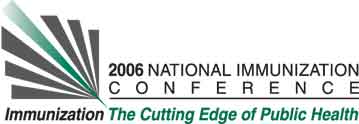Karlen E. Luthy and Renea L. Beckstrand. College of Nursing, Brigham Young University, 535 SWKT, Brigham Young University, Provo, UT, USA
Learning Objectives for this Presentation:
By the end of the presentation, participants will be able to identify the following within the immunosuppressed pediatric population:
1. The most common measles or varicella vaccine side-effects.
2. Most current seroconversion rates of measles or varicella vaccine reported in the literature.
3. Risks vs. benefits of live-virus vaccines.
Background:
Although immunization is a cornerstone of preventive practice, measles and varicella vaccines are not widely recommended in children who are immunosuppressed post-transplant or while undergoing maintenance chemotherapy for leukemia. This critical review examines 11 studies conducted with immunosuppressed children wherein side effects to the measles or varicella vaccines were noted and seroconversion rates were examined.
Objectives:
Topics will include: 1) controversy surrounding live-virus immunization; 2) review of live-virus vaccine side effects; 3) seroconversion rates of live-virus vaccine; 4) risk vs. benefit analysis.
Methods:
Integrated literature review of 11 articles regarding safety and effectiveness of either measles or varicella vaccine in children with drug-induced immunosuppression secondary to solid organ transplant or maintenance chemotherapy for leukemia.
Results:
Serious side effects such as vaccine-related disease or zoster occurred in 11% of the immunosuppressed children. Seroconversion occurred in 82% of patients following one dose of measles or varicella vaccine. Long-term follow up showed that only 85% of those who had originally seroconverted after the first dose of measles or varicella vaccine remained protected.
Conclusions:
Because measles infection is no longer considered endemic in the United States, it may be advisable to not vaccinate children who are immunosuppressed and, thus, risk the side effects of vaccine. In contrast, varicella has a higher incidence rate and poses a more imminent threat to immunosuppressed children. Our review shows that children who are immunosuppressed can receive the variella vaccination; however, they should have regular titers drawn to confirm adequate protection against the disease and should receive boosters as deemed appropriate.
See more of Posters
See more of The 40th National Immunization Conference (NIC)

